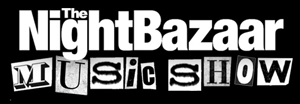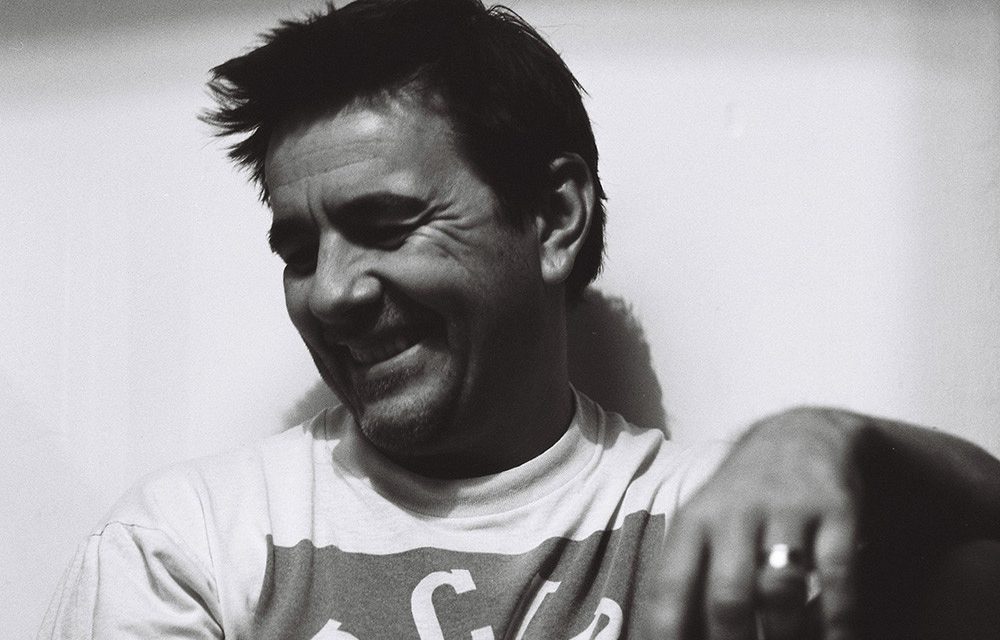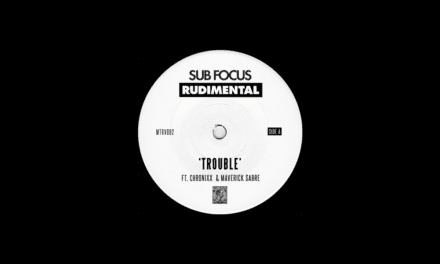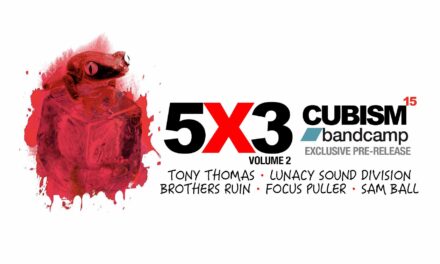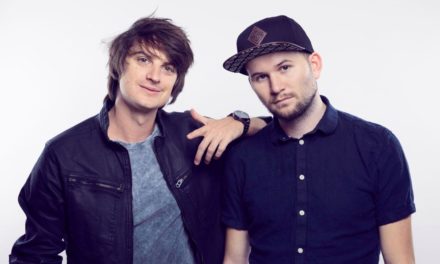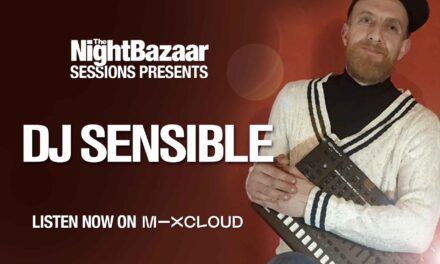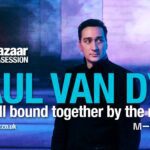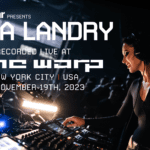Legend and pioneer…Laurent Garnier
UNDOUBTEDLY one of the most respected names in international electronic music, Laurent Garnier is a man who’s been making the world dance for over a quarter of a century.
A true artist and real pioneer in every sense of the word, French-native Garnier is recognised around the world for his profound impact on dance music as one of the major players responsible for crafting the scene into what it is today.
Truly passionate about the past, present and future of dance music, Laurent Garnier’s energy, motivations and love for the music means his fans range from the godfathers of techno who’ve watched their music grow and evolve, to aspiring young DJ talents and producers creating their first tracks in their bedrooms.
Garnier claims that even at the tender age of 10 he already knew his destiny, “My bedroom looked like a nightclub. There were strobes, multi-coloured flashing lights, a disco ball, a DJ booth and a dance floor. I switched on my disco ball every night. I only dreamt of one thing: making people dance.”
And that dream is one the DJ master has certainly achieved, with sets that range from acid-techno to disco, jungle to dubstep, house to jazz and everything in-between.
Having moved to the UK in the 1980s, he made his name on the circuit, handing out mix tapes, leading to him becoming a resident DJ at Manchester’s legendary Hacienda club as acid house rose in popularity, before moving back to France.
The rest, as they say, is history. Since then, he has released well over 50 records, as well as producing some of the most notable tracks in dance music, including ‘The Man With The Red Face’.
Originally published on August 12, 2014, we sat down with Laurent Garnier to find out a little more about his inspirations, his plans for the future, and his views on modern dance music.
Can you tell us how your career in dance music started out?
So, it all started out quite strangely actually. My background goes very far back, as far back as the Hacienda. I was living in London when I was about 20, training to be a professional caterer. Then I got a job in Manchester as a waiter in a really good restaurant, so I moved up north. When I arrived there I was spreading tapes all over the city, and one of those tapes went to the right person at the right time: Paul Cons, who was organising all the parties at the Hacienda. Paul got me a job as a DJ at a party called Zumbar. That was basically my dream.
I DJed at the Hacienda for just one year, before the explosion of acid house and then it all started in 1988, but I had to go back to France for military service as it was still compulsory back then. There I was still DJing at night and doing military service in the day, but things just weren’t the same as they were in England. We were hearing all about it – with the raves and the explosion of acid house. Things were very different over here.
I moved back to the UK in 1989, but I really felt like I’d missed something. I left just before the explosion. I came back and acid house and techno were big things, but I really felt like I’d just missed it. It was a train and I wasn’t on the train. I felt like I wasn’t going to be a part of it because I wasn’t there so I thought it was better to go back to France, do my thing and fight for it in France – I wanted to feel like I was at the birth of something. I came back to France in 1990 and I fought my way to make techno music and house music, something good. So I started playing out in clubs, started producing.
My first record came out in 1991. But I made sure I still kept in touch with my English friends – I was still going back to Manchester. Then on to London, then my first big raves were the Universe raves.
Then I started travelling a lot because of producing and DJing. Back then you could actually make a living from DJing, you could become famous just from DJing, not producing, so I was travelling all over. Then I got more into producing and playing live, extending my skills to different things so I wasn’t repeating myself too much.
I said from a being a little kid that I just wanted to make people dance – I never imagined how strong it would be. My father was working on the fairgrounds, playing music loud. I was so upset when my father changed his job because in a way because I always wanted to carry that, but I think that is what is I am doing now.
Essentially I am selling people dreams, a little piece of a good time. People come in, they listen to music loud, they dance for a couple of hours and they go home. Sometimes if I do a special set they’ll remember it for a long time, like a concert or a movie. They are good memories and good times. But when I was a kid I was just imagining people coming in, I wasn’t imagining all the special feelings that can come within the party.
As DJs we all have amazing memories of places where we’ve been and had special nights. I never imagined that we’d be able to mark people for life with a very special night.
Having been around since the very beginning of the UK and European scenes in the late 1980s and early 1990s, what is your take on it all today? Are we still moving forward? Are there enough creative souls taking risks and pushing boundaries?
I don’t think we are moving forward music-wise, and I’m only talking music wise. The music being played at the moment, the labels and music that is labelled as underground are very reflective in a way. A lot of these guys have gone back to something that was happening maybe 15 or 20 years ago, the same way of making their music, as producing, the same way of distributing their music – all these guys now are going back to releasing or playing only vinyl, or making tracks with these old machines like their hardware. So this is really strange for me after like 25, 30 years in music.
The underground today is looking back more than it is looking forward. It’s not bad, it’s interesting. Have we finally gone full circle?
So maybe music-wise at the moment we need to wait and see what is going to happen tomorrow. For me techno music was always looking forward, so I don’t get it, but it’s not a bad thing. At least 10 years ago, the interesting stuff was more forward-thinking than what it is now. Maybe that’s going to create something super special – maybe it’s been a big cycle. Maybe we’re in the same position as with what happened with house and acid house all those years ago – nothing new was happening. Nothing was fresh, everything was recycled, and something happened. Maybe we’re at that moment now. I like the music that is happening now, but I’m always thinking what next? What I find REALLY strange is that the people involved with techno had to really fight for these futuristic ideas, for people to believe that the computer was an instrument. Now, all these years later this has been completely accepted, but we’re instead looking backwards. That’s why I find the idea of techno today very confusing. We’ve gone through a lot of very different generation, a different level, fighting for the music that they were creating, a very clear-thinking towards the future. Then they did it. Now you can find techno music in basically every single bar.
The new generation might be thinking ‘this is a bit too easy’ so instead they’re looking back and thinking ‘it was so much better before when these guys were around’ and they’re fighting for a change. Around five years ago the kids didn’t have anything left to fight for, so maybe that was their way of doing things, going back to the old way, giving them something to fight more. It’s more rewarding, there is more passion, I like that.
Ten years ago people started saying that all music should be free. That generation didn’t understand that you needed to spend a little bit of money to buy a record. I think the guys who are 20 NOW, DO understand that. They understand you need to invest yourself – your time, a little bit of money in an artist because this guy has been working on this record. Buying his record is something very important in the process, not just a piece of vinyl. If you like someone, their music makes you feel special. I like that you would go out and spend a fiver on a record. The investment will mean this piece on vinyl will stay with you forever, mean something. Music-wise, if you look at the music that is meant to be very underground today it’s also very backwards. It’s a very old school sound.
Has the commercialisation of dance music in the form of EDM damaged or inspired the underground? A lot of people think it’s a good thing as it has opened the door to a new generation of dance music fans who will delve deeper as they search through the multi faceted scene that is underground electronic music.
Music that is deemed as underground definitely takes a lot more time to produce, big time. It’s more about access, image, and where you want to stand. It’s all about your way of thinking.
For me personally in the last 25/30 years of my career there has been no question as to where I stand as an artist. Should I be underground or go commercial? Should I make a f**kload of money? I’ve always stayed where I’ve wanted to be, where I was normal, which is playing the music I believe in, in front of a crowd – maybe not the biggest crowd, but that would never be a question for me.
Although my name got quite big, I’ve never compromised and always played the music I felt good with.
Last weekend I went to Canada, and saw Skrillex in the main room – I was in the small room because of the music I play. It’s all a matter of where you stand and what you’re in the game for.
I’ve never been in it for money, and most of the promoters i’ve been working with over the years know that very well. I’m not a pain in the ass, [I don’t ask for] extravagant things, money. I’m not being a superstar. I just know myself very well. I think we all know that 95% of people working in the mainstream, in the big system, won’t be there in three years. My idea was always to stay for a very long time, but I truly believed with all my heart in techno music, that what I was doing was the right thing with the music I play. I’ve never compromised. Maybe some of these big EDM DJs don’t have that – they are selling themselves as more of a product. It’s very interesting.
Skrillex was not as commercial as I’d expect, but what I must say is that these performances are ‘shows’. They are not DJ sets. They have to do the same set every time because the lights need to go off at the same time as the beat. He’s not thinking five mins before his set what tracks he’s going to play, how he’s going to end. I never know. For me it’s all about the creation. I don’t know how I’ll start or end. I go with the flow, build a crowd.
I think a lot of the new generation want to be surprised by big fireworks and super special effects. I think it’s all part of the new generation who don’t know how to absolutely abandon themselves in the music for a few hours. They aren’t reacting to the music, they’re reacting to the energy, the fireworks, explosives – big pyros, big noise, everyone is going crazy. Then when the actual music plays it’s more time for them to play with their phones, take some photos, go on Facebook. Then there’ll be another rush! But they don’t actually just let themselves go. They don’t think ‘f**k everything, I’ll put my phone away, I don’t care who else is here, I just want to get lost and listen to the music, to a story and go home with an incredible moment engraved in my brain’. It’s not the same way as some people that used to.
Your marathon eclectic sets are the stuff of folklore, have you found younger audiences are as receptive to this as they ever were in a very genre focused scene?
Of course there is! I mean the perfect example is the Berghain or Panorama bar in Berlin. There you aren’t allowed your phone out, no pictures in this place. They are allowing people to disconnect, giving you the chance to escape as long as you are playing the game, and don’t go too crazy. What happens in Berghain stays in Berghain, and everyone knows that. No one is going to take a photo. I’ve been there 15 times, played there 10 times, but what people all say about this place is that you can go there for one drink then the next time you look at the time it’s 2pm on Sunday afternoon. It’s like a time warp.
The reason this happens is because when you walk into this place they make sure that they let yourself go, fully encourage you to get with the vibe – and of course you are going to have a good time. I remember one time I was there I was very drunk, and after 10 hours of DJing I accidentally got my phone out and the barmaid pretty much jumped over the bar and said ‘I know who you are and you’re not taking any photos’. The photo would have been nice but the memory is always better.
So, with places like this you always have lots of new people who are just as receptive. It’s just that not all places are like this. If you look at the festivals I play or club shows, all the publicity has a sign for Facebook, Twitter, being connected. Sometimes people are so busy wanting to share the moment that they forget to LIVE the moment. I think that you need to lead people to these places and let them know it’s OK to disconnect, then when they disconnect its great.
Really like the journal format you have developed on your website. Have you whole-heartedly embraced the onset of the technology and the creative opportunities it presents?
It’s almost like more of a personal thing, for when I am travelling, and meeting my DJ friends. You meet a lot of people, and I never used to take any pictures, so now I take pictures of that. One of the most important things to do for me is to share articles in the journal that some people may not have seen, because now there is a bit of an information overload, so people seem to know a lot. But MOST people don’t actually go too in depth into each subject. I’m not just talking about techno or art but also about general subjects. It’s very rare that you’ll read a book about something, then research the related films and books.
At the moment, I’m reading a book about the Hells Angels and it talks a lot about films made in the 1960s surrounding the Hells Angels so I’ve been finding the films and watching them because I wanted to know more. It’s like people have this knowledge but only on a superficial level. And what I really wanted to do with the journal was to show the way we work with labels; to show people the way we work and build relationships here. You can release different sounds with different labels. To show the strong collections and relationships you create with the people that you’re working with.
What we’re doing is not just sleeping around, making different music with lots and lots of different labels to be trendy. We’re working with people we want to connect with and have complete interaction. The main thing of the journal is the correspondence between the labels, [showing] the way we work together. Working with different labels isn’t just imposing unless you’re an arsehole. It’s nice to show people that we don’t work in the same way with 50 Weapons as we would with someone else.
I have a very strong friendship with some label owners, then some I have never met. I want people to see it’s not me going to the label and imposing my music on to them. People think a big name can impose their work on to smaller labels, but it’s not about that. It’s about collaboration and creating something special. We are doing five EPs at the moment, and something will come after that. We will never leave it at that because there is too much of an ending to that story, a conclusion.
The journal explains the fun and the funky people, but importantly it shows when we are working and crossing all these people that we are always pulling a lot of ideas together, working towards something together and collaborating, with work being built alongside a relationship.
It’s like with me releasing on 50 Weapons, I originally got in touch with Moneytown after hearing the Moderat album. They suggested I go over to 50 Weapons. I always thought 50 Weapons would only want new blood, fresh blood. I thought I was way too old for that.
I was very happy to hear that they’d been a fan of my music and since then there have been so many questions, building the relationship and changing things between myself and the label. And working with different labels also helps you to meet new and fresh people.
What is your set up of choice when DJing now days? Even with all of the technology it’s great that vinyl is enjoying a resurgence in popularity.
I tend the use the USB key, just because this suits my style and way of DJing the most, not because of technology. I switched from vinyl to CDs to do this. The USB gives me the chance to make longer mixes, make short tracks longer, long tracks shorter. Maybe I’m a bit old school because I love long mixes. I like to always tell a story and the USB allows me to do that. With vinyl I start thinking like I am being rushed, looking at records and thinking ‘only one minute left!’ – I want to take my time. USB key is perfect for me.
What DJs and producers have really got your attention right now? We love your remix of The Fall by Copy Paste Soul on his revived 2Swords imprint. He’s one to watch for us.
There are so so many. I mean usually when I do a remix I ask to do an exchange. I met Copy Paste Soul around four or five years ago in Ibiza when he was making much more techno than he is now. The music completely blew me away and so we always kept in touch. I asked him to do a remix for me for a little project I’m working on, so then I did that remix for him as an exchange.
There are so many young talents though – there are so many in France right now, exciting guys making incredible music. There has NEVER been such a quantity of good music than there is right now. I’m redoing my stick every single week and I have 50 new records – that’s eight DJ boxes! You were never, ever changing your DJ boxes every week. Now I have a new DJ box every week.
The other day I checked my stick and I had 950 records. I would have been LOST with that much 10 years ago. It’s good, very healthy.
Now with no money people can become producers. They can put their music on the net to distribute it. It’s no longer a matter of money and it has been a matter of money – even with the gear the distribution and vinyl was impossible. Now you can do it all yourself which is very interesting. If you like any style of music, all you have to do is dig a little bit and you’ll find hundreds and hundreds.


